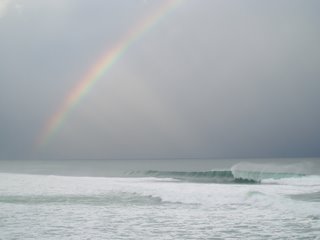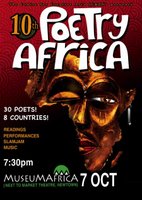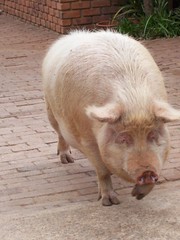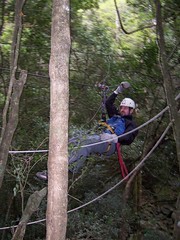I finally finished my 23 page internship application package and couriered it off last Thursday. Just imagine me sitting besides the fax machine and watching it go "error" every second page. Needless to say, it went through and I'm now crossing my fingers for good news in November. After that ordeal, I made it over to my last seminar ever for my Masters degree and it was a guest speaker from the World Bank Group, Rogier van den Brink, speaking about the redistribution of land in South Africa. He talked about the need to help with "empowering beneficiaries", those family farms that can help increase the standard of living for the rural poor. Rural farms would be productive of land, any income earned will go back to the community, the social capital grows around these farms (clinics, schools, churches etc. ) From what we learned in this whole course, is that a more equitable society leads to more growth, especially those that redistribute land equally to the people. One thing that stuck in my head was when he mentioned that every country he visited, there were few or no slums in countries with good rural development programs. There are major land reform issues in South Africa because of the legacies of apartheid. Here were the major points:
"- Land markets need help
- Much more than land needs to be financed
- Need flexibility in financing to assist poor and non-poor
- Supply-driven implementation through “stovepipes” is unworkable
- Government officials cannot run groups and farms
- Land reform needs to be part of local government development priorities and planning
- Impact evaluation to be stepped up"
(Seminar 9: Poverty & Inequality, Sept 7, 2006).
Right now, much of the farms are large commercial areas where some of it is used for crops and a larger part is idle land. It is very difficult for smaller farmers to afford these large areas for their own familly use. There is currently little reform in creating this market, similar to such divisional ownership like condos in Vancouver. On top of obtaining land, assistance is required for housing as land is only 30-40% of the cost in creating a family farm. The government needs to move towards a joint effort with ministries in addressing rural development because currently each ministry is divided and do not come together on their efforts towards land reform. Fantastic last lecture on South Africa. One more assignment to go and then off to Mozambique for field work!







